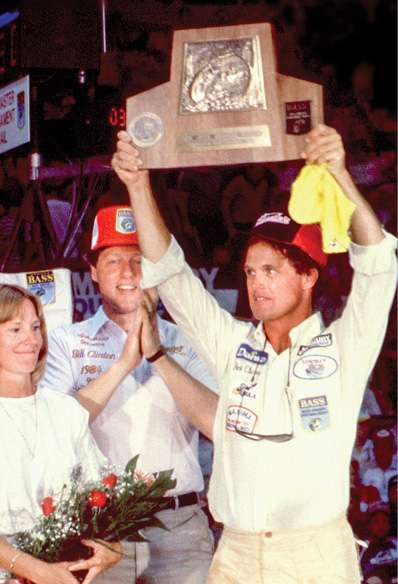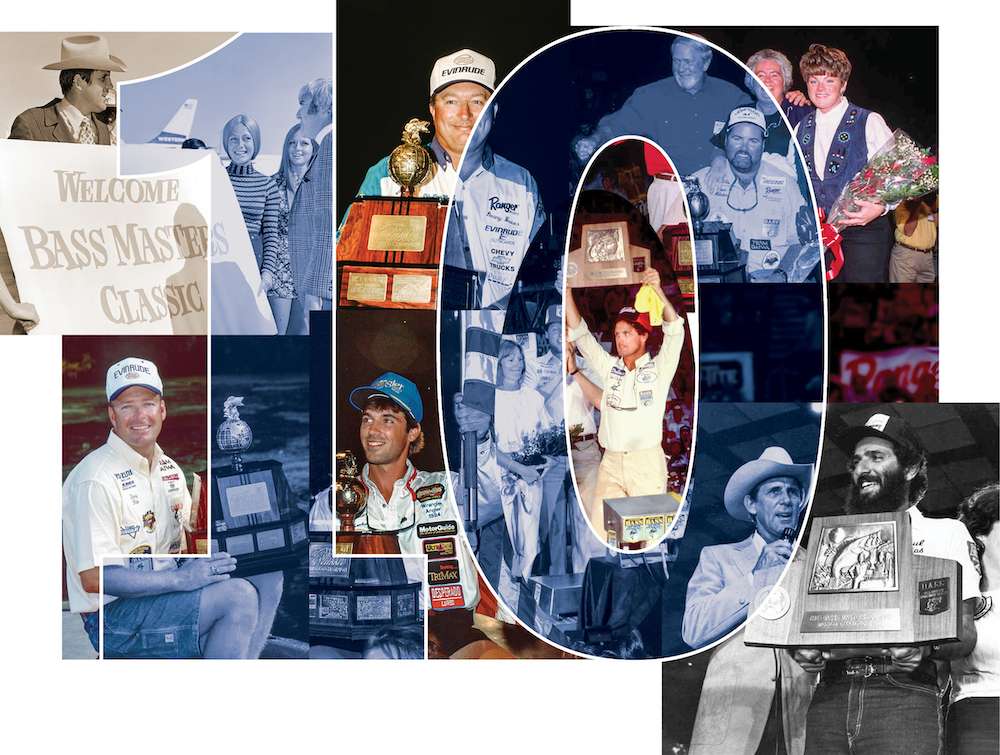
Well, unless youâve attended every championship and watched with unblinking eyes, unwavering attention and with a laptop at the ready, thereâs a good chance that at least some of the information here will be new to you. Even Ray Scott and Bob Cobb â B.A.S.S.âs founder and the first true editor of Bassmaster Magazine, respectively â couldnât possibly know everything about the tournament they created.
All captions: Ken Duke
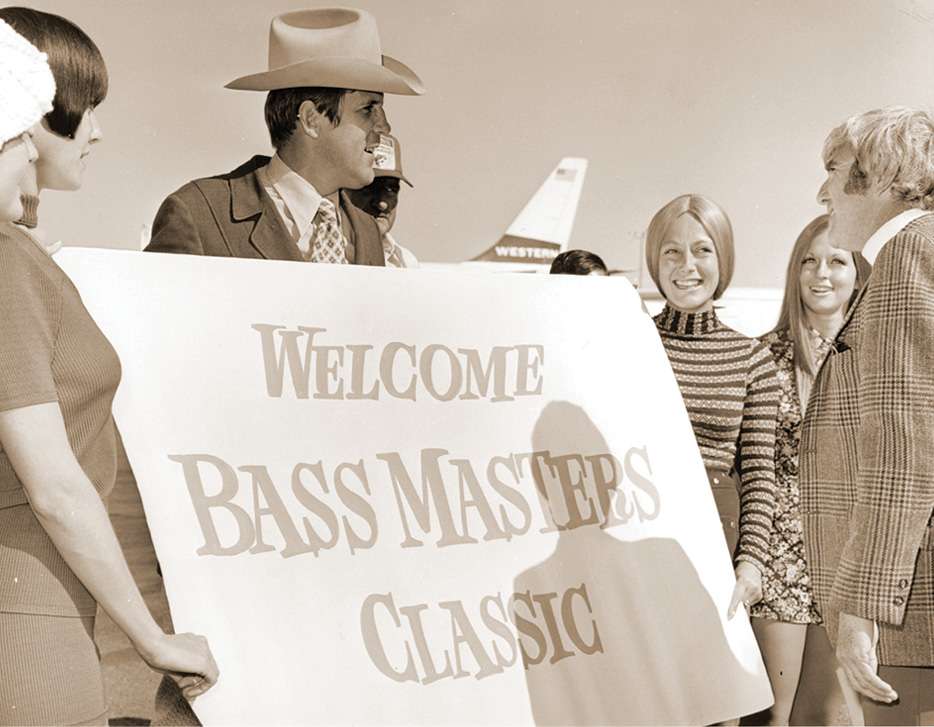
Why the changes? Well, the first change came after Scott and Cobb realized they should leverage the B.A.S.S. acronym in the name of their biggest event. The second change came after sports media giant ESPN bought B.A.S.S. in 2001. It rebranded most of the companyâs properties to âBassmasterâ this or that. That name has stuck, even through two subsequent ownership changes. Nevertheless, youâll always be safe calling it âthe Classic.â
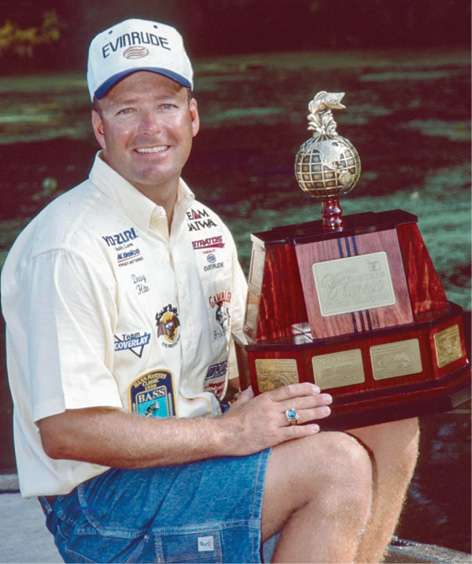
But if the seasons werenât news to you, did you know that the competition days have changed through the years? The first 10 Classics ran from Wednesday through Friday â no weekend fishing at all. That changed in 1981. From â81 through 2002, competition days were Thursday through Saturday to accommodate the expos that have become so important to the event. It wasnât until 2003 that the Classic moved to its current schedule of Friday through Sunday to better suit fans and expo exhibitors. As competition days moved into the weekend, attendance soared.
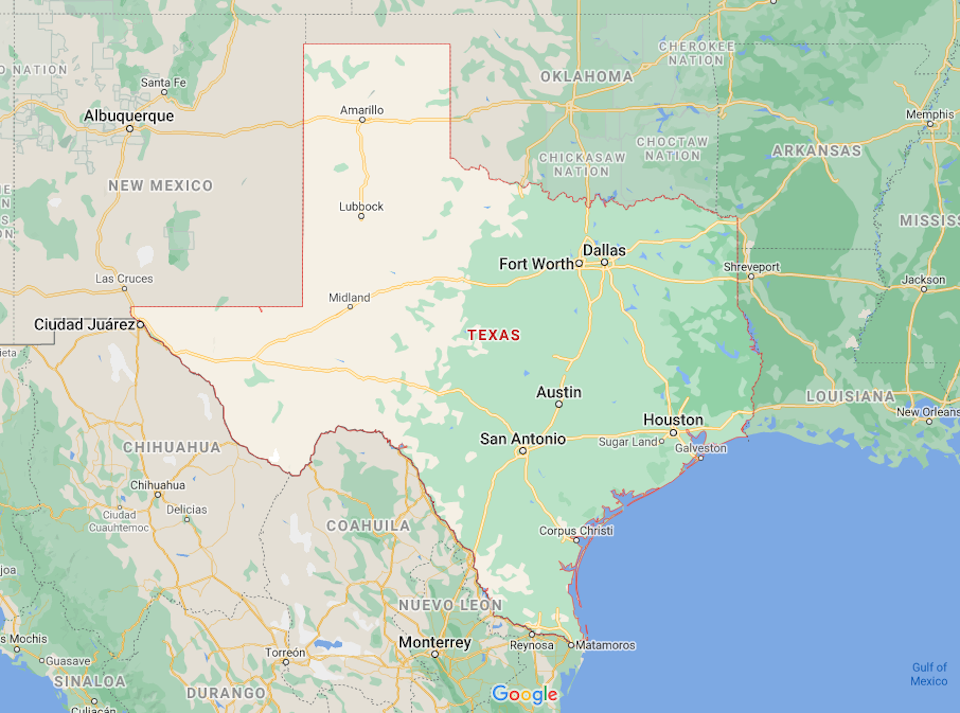
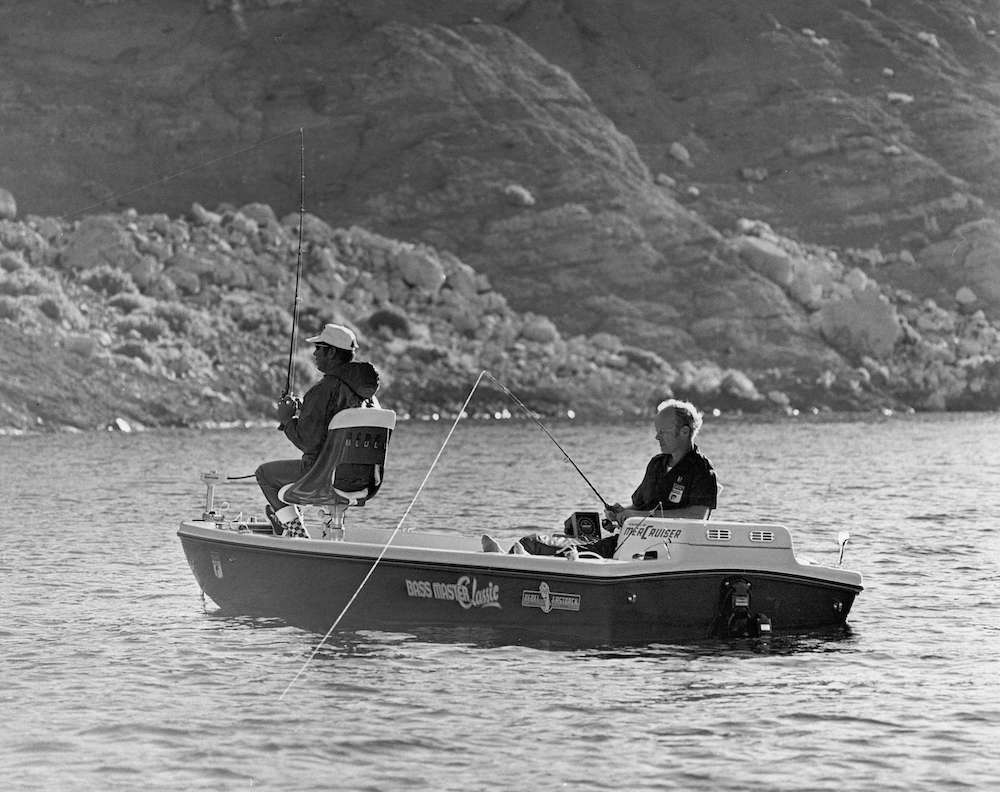
Speaking of press, the reporter who has covered the most Classics for Bassmaster Magazine is the legendary Steve Price. He has written the coveted âgame storyâ 40 times, beginning in 1976.
Because the championship has been held on 29 different fisheries and in eight different months, winning weights have fluctuated wildly, but most would be shocked to learn that nearly half the winners failed to catch a limit all three days. It happened most recently in 2017 when Jordan Lee weighed in just 12 of a possible 15 bass.
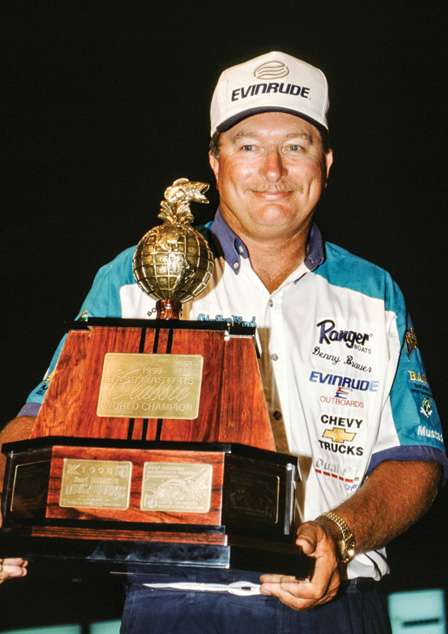
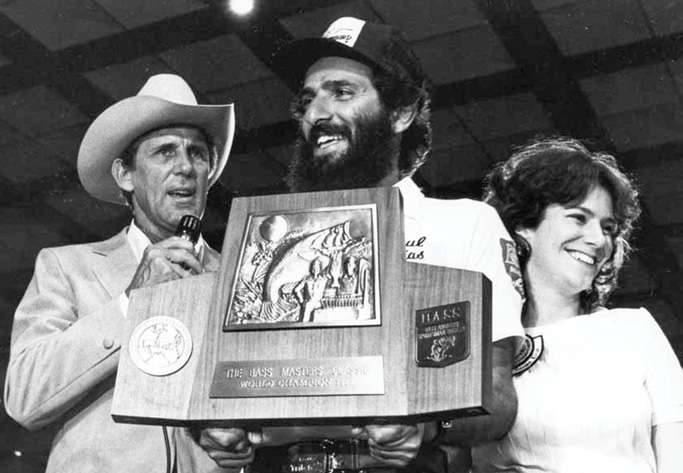
The record for longest gap between Classic appearances will be established this year when the field launches on Lake Ray Roberts. Clark Wendlandt is reigning AOY and will be high on the list of pretournament favorites. He last fished the Classic in 2001 â a gap of 20 years.
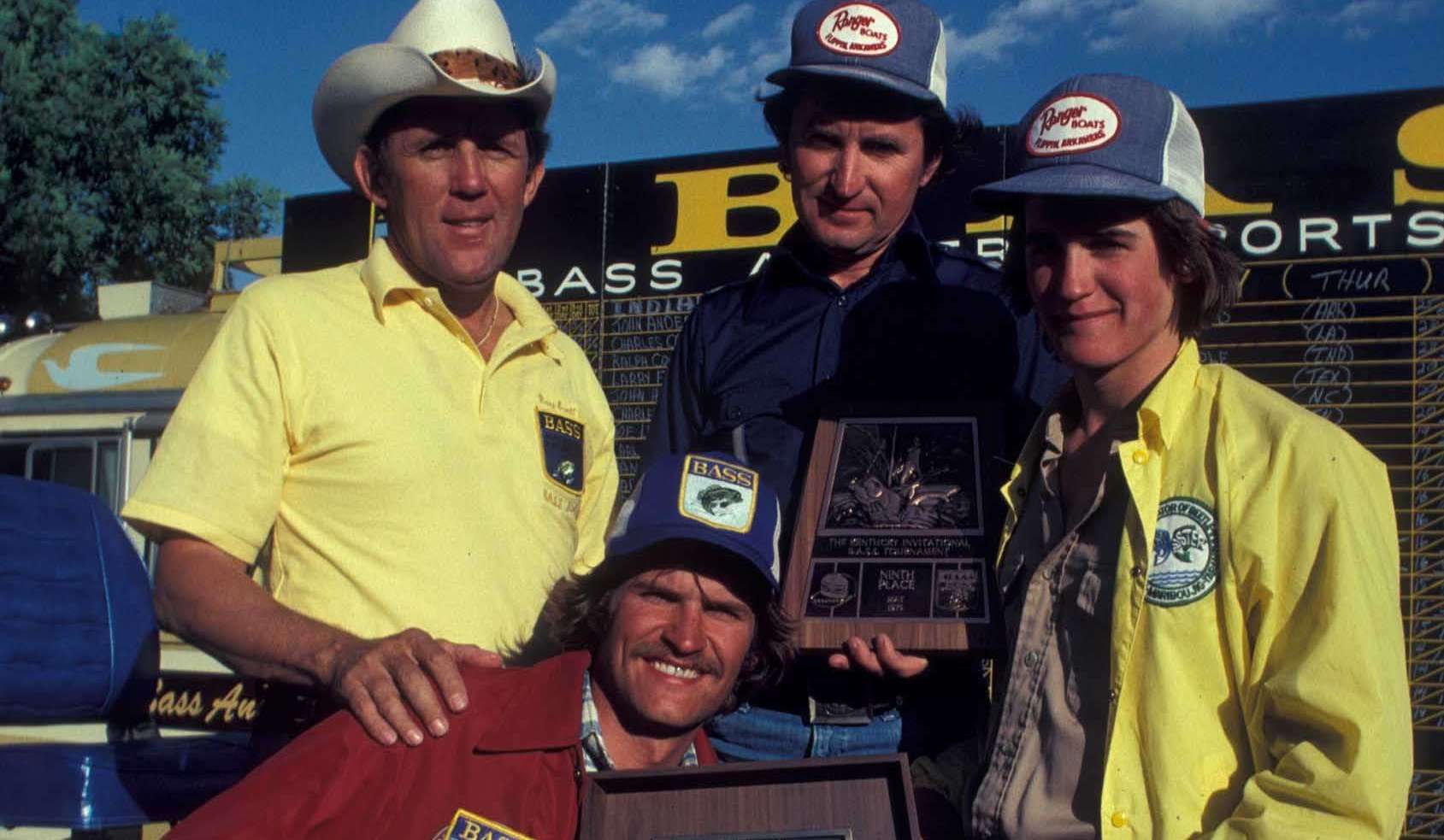
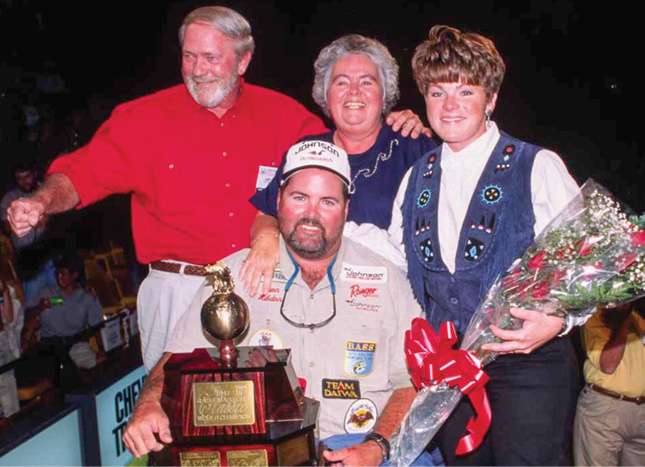
But finishing last in a Classic canât be as bad as being the first angler outside of the Classic cut, can it? Every year thereâs a âbubble boyâ â the angler who just fell a little short in points or pounds or whatever measure is in vogue that season. Woo Daves, Guy Eaker, Shorty Evans, Mark Menendez, Scott Rook and Jonathon VanDam have all been the bubble boy ⦠twice!
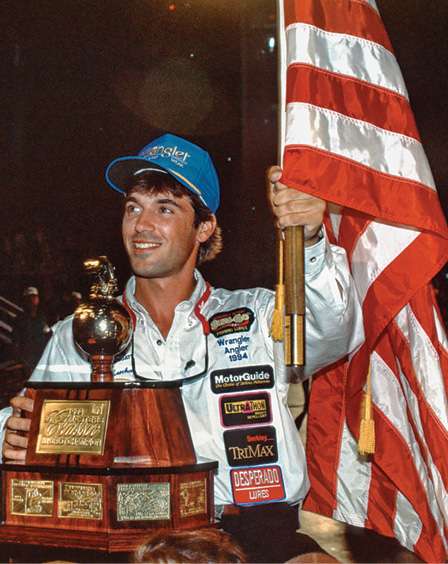
With all the pomp and circumstance surrounding fishingâs greatest tournament, it seems everyone likes to talk about comebacks â anglers who are down in the standings but bounce back in heroic fashion on the final day. Such turnarounds are exciting, but they are also extremely rare. In 50 years of the Bassmaster Classic, you should know that more than half of the eventual winners ranked in the Top 3 after the first day. Seventy-six percent of winners were among the Top 3 anglers after two days.
